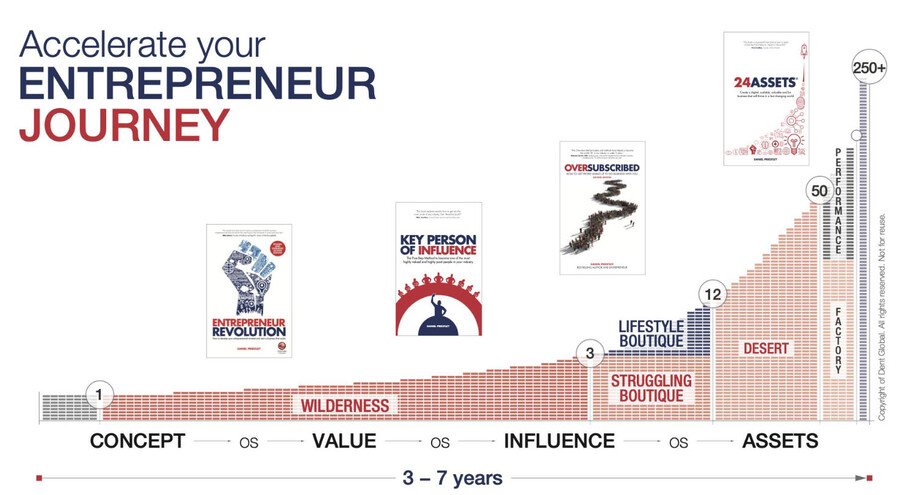For those with shops in town centres, business can be a mixed bag.
Some high street stores report record profits, whilst others grasp onto life by the skin of their teeth. Others still, close, leaving empty, unsightly buildings, bringing down the overall appeal of the locality. Where I sit right now, there are 3 businesses with ‘Closing Down’ signs - On my street. My home town is a ghost town - there's nothing left to close down. A far cry from my Childhood, which is filled with fond memories of a busy and bustling retail experience
The problem is immense. But why has this come about? How can it be reversed? Is it worth it?
Before we look at this, lets deal with the doubters. There are those who have had business in town centre locations, and had a good exit strategy, making a profit, or those who remain, and are doing well. The problem isn’t universal, and for those people, I am glad. A mixture of good location, good community, and their good business sense has prevailed. To that end, I appreciate what I am saying may apply only to the 30 or so towns I frequent with business – I’m of the belief though, it may apply to all small towns nationwide...
But for these very towns, there is a definite issue.
Larger chains, their foot soldiers in store don’t see, or realise the ins and outs of business ownership. They are set targets to achieve, and this is their goal. Their products are usually very competitively price marked, with a national advertising campaign using all methods including TV. The margins are exceptionally high – with several brands having the purchase power to buy out masses of liquidated stock, or negotiate huge discounts on bulk purchases – and as I doubt very much the owners of M&S, Wilkinsons, Sports Direct or the other chains will read this, we’ll leave them to it – but, for a part, they are both a slice of the problem, and a slice of the solution. It is to be noted, they themselves have had turbulent times.
I want to focus on the businesses that forum members may have. The SME’s, from sole proprietors to little Limited companies. Butchers, Bakers, Haberdasheries, and the such.
These businesses experience dwindling customer numbers, high rent, high rates, and they scratch their heads trying to survive. So lets take a look at each key issue individually to find a solution together.
Dwindling Customer Numbers.
Customers have more choice today than ever. With 24 hour stores such as Tesco offering similar products, it makes sense to go to the out of town superstores. It has free parking, right outside the store, and it’s open after work.
Conversely, the town centre isn't convenient. Parking is often a little walk from the shops, usually you have to pay to park, it’s grotty, grubby, smelly. There’s parking wardens everywhere, crime feels as though it’s rife. The prices in the shops appear to be more expensive, and the place is 9 -5.
So, this is a problem of convenience, cost and experience.
What needs to happen, is the local authority (Who generally owns the car parks) needs to give free parking. The place needs to be cleaned, budget needs to be expended to sanitise and paint, and as an area becomes more prosperous, the anti social visible side of crime kind of steps down, or moves on – the area naturally cleans up as community returns. As profit returns, prices can be lowered in store, and the local authority benefits from a higher revenue base, all paying its rates and taxes, offsetting the lost revenue from parking. Holistically, the situation improves all over.
Real incentive to come to the town centre needs to be given. Take the benefits away from the out of town shopping centres, and make it cool to shop in town. Interestingly enough, when I go anywhere on holiday overseas, I eat in the local towns – I don’t seek out a McDonalds. I shop in the little towns too – not trying to find supermarkets... that’s because I want to experience the sights and sounds available. Currently, in many British towns (Not all) the sights and sounds are far from pleasing.
If a British town centre had live entertainment, (as in music, morris dancers, etc) and live events, and items of interest being played out, then the visit becomes an experience. A sense of belonging returns, and community is established. If it’s clean, safe, and aesthetically appealing, you want to be there.
The town centres should be a viable place to get anything and everything, and to experience something exciting and exhilarating, and you know something, shops now need to open from 0800 – 2100 Hrs to start competing. All businesses need to pool together, to ensure continuity of footfall, and to change the trend in the mindset of the shopper, so they understand they can shop after working hours.
High Rent
Often falling Turnover – let alone profit, is blamed on the landlords commanding a high rental price.
Well, they own the property, they have a mortgage on it, you don’t need to be there. I don’t own any retail property, I’m just trying to be adjective.
The truth is, it is better for them to have a tenant, than not. After a couple of months as an empty property, they are liable to pay rates, so it’s not a healthy position to be in.
This is great leverage, (Landlords will hate me) Negotiate. If the property is £35000 PA, offer them £5000 and work out a price you both are willing to commit to. If you've got a great idea, and you know it’s going to work, and this is a new business, why not get 3 months free, if you paint the place, followed by a rising incremental rent scale over time, until, at year 5, you’re paying just below the full amount.
Ensure you have a break out clause of course – say 3 months rent, just in case things go wrong.
Currently locked into a lease? Have a chat with your landlord, and tell them you will close the doors – and need relief. Does he really want an empty building?
Don’t forget, the landlord is a business person too – just a different kind. He's in this to make money.
High Rates
Rates, in my opinion are a large cause of business failure. Often we see rates that exceed the rent being paid, and local authorities not willing to deliver any relief at all. (It’s on a case by case basis, and in my experience they are tight – because they are skint). There’s no negotiation, and the local authority will arrange collections swiftly for non payment, often taking tenants to court.
First of all, if you are unable to pay rates, then you must speak to the council – they aren’t all monsters, and can help with payment plans and the such.
However, I don’t believe rates should operate as they do, and the revenue should be generated from a tax – so your company does well, the council gets more money, your company is doing badly, the council gets less / nothing. Much the same as the rest of the business taxes work.
Instead, Rates are worked out by property size, and location, with a few other factors thrown in for good measure, making expansion seem scarier than it needs to be, oppressing the little guy, and keeping him in his box.
Something should be done about this at Government level, with more incentive to in town stores of certain sizes. Perhaps a new startup incentive to allow them to crawl, then walk, before they can run.
Stick these things all together, and do the math with a real business and we can often find something like this:
Per Month:
Monthly Turnover: £4800
Product stock replenishment cost: 50% : £2400
Rent: £800 (negotiated down from £1700)
Rates:£1200 (After just being put up by the VOA)
So, this guy had to find £2000 from his turnover just to be there, let alone the cost of travelling to work, eating, Gas, Water, Electricity, Insurance etc etc.
It’s no surprise, he was running at a loss.
What he needs is to double his turnover, and the way to do that is to double the footfall.
To double the footfall, you need the incentives that the out of town shopping brings. If he was a new business, and he had no rates to pay, he could reinvest in his business, and grow it, bringing more product lines in.
So, how do we bring about change? There is much talk, and little action. Without instigating non payment and Rebecca Riots, Chambers of Commerce should take more of a stand. Everyone should be united, with solidarity.
The local authority needs shaking up, and we need to return to a system of fairness and common sense.
But, in business, we, as business people need to focus, and if we want an opinion, we need to be able to play with the big boys.
The large nationals as mentioned before seem to be doing ok – sure, we’ve lost the likes of Woolworths and other brand names, but, we must ask ourselves how we can Improvise, Adapt and Overcome any difficulties.
We’ve discussed some of the problems faced, but what are we going to do about it? Are we going to lobby on mass for a resolution? Will we renegotiate rent?
Or perhaps the route forwards is to generate more revenue somehow?
If you have a retail business, in a town centre, you cannot simply rely on walk by trade – you now need to think about marketing, and having a strong online presence.
Not understanding technology is no excuse. If you have a cake shop, do you understand how to make an oven from its component parts to bake the cake? Of course not. You outsource it to the manufacturer, and the online presence is the same.
The ability to stock check online, then come in store to look, feel and touch the product, before decision making is the new way of shopping. Once the customer is in store, you now have the opportunity to upsell, and of course, the potential is there to make additional purchase for price rounding.
Other customers may prefer to buy online - even though they are a stones throw from the store - hey they pay shipping, so it's all good, and it makes your store 24/7!
Don’t have the revenue to afford implementation of this? Speak to you children, grandchildren, or approach a local college and see if their IT department wants a project to take on.
You must think outside of the box, and go the extra mile. Marketing old businesses as though they were new, and bringing the focus back into what you do best.
What we are trying to overcome, more than ever, is the self destroying excuses. Think 'can do', then 'do', and never get bogged down in negativity.
In Summary, the town centres are shambolic at times with many factors affecting it. But if we identify the problems, find the solutions, and work together with positivity for prosperity, we can win.
The infrastructure is in place, and our town centres traditionally are very nice places – communities are still there, just, it’s the trends that have changed, and we must adapt with the times.





